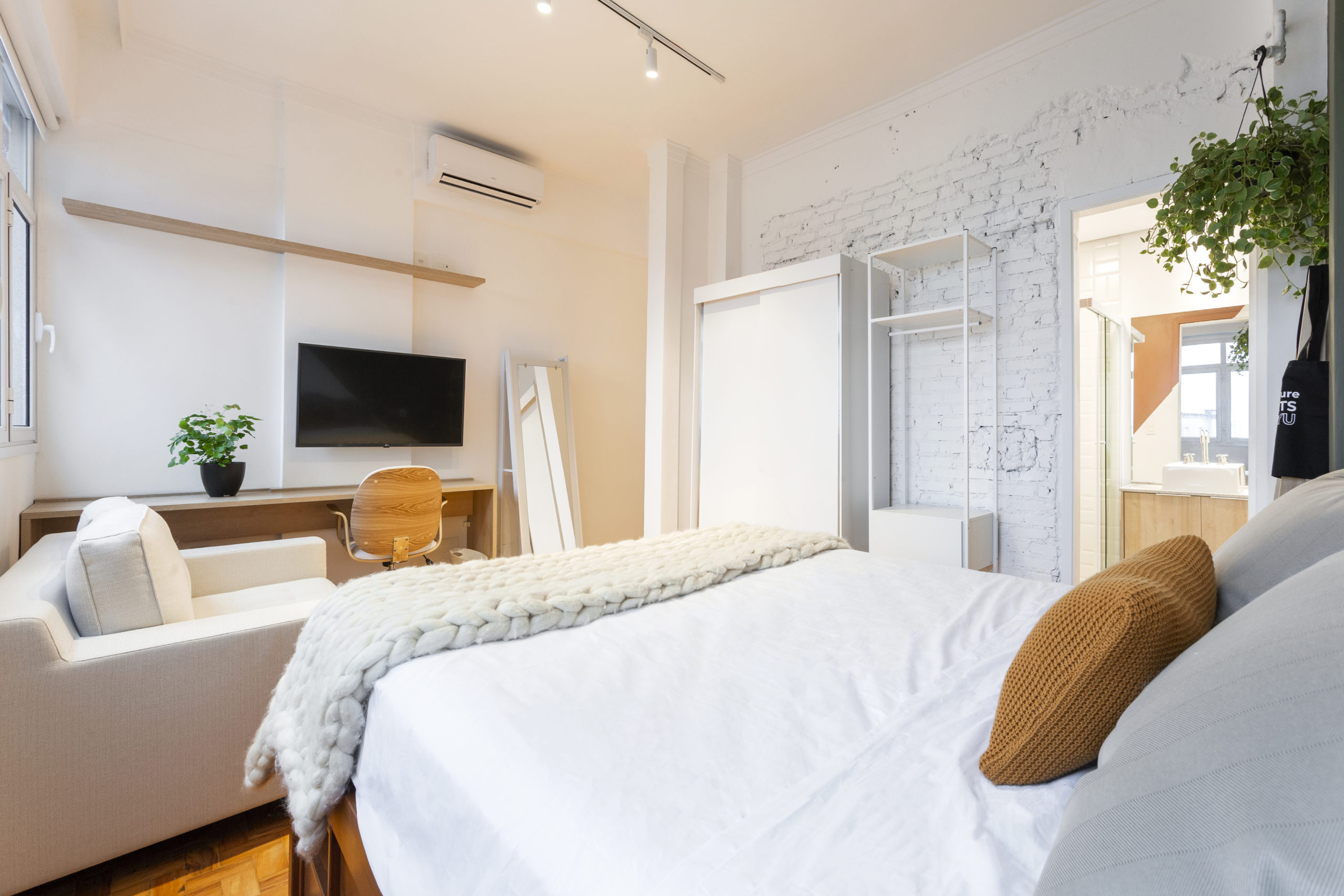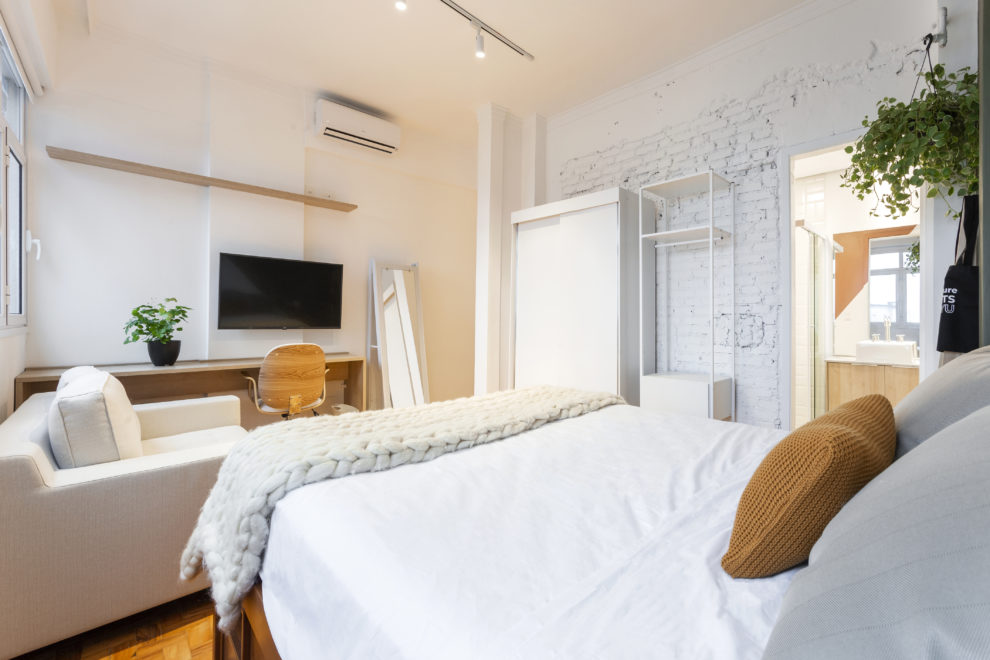Co-living spaces are popping up all over the United States, especially in cities where rising rental rates and tight supply are becoming a serious issue.
Subscribe to the Crunchbase Daily
But in countries like Brazil, these types of spaces are not common for a number of reasons. (Historically, most people have lived at home with their parents until they marry, for example.) However, as the Latin American country’s society evolves, the real estate scene is attempting to keep up. One proptech startup is hoping to help bring the country up to date in terms of its apartment offerings.
As part of that goal, São Paulo-based Yuca has raised a $4.7 million pre-seed round led by Brazil’s Monashees. ONEVC, a cross-border firm with offices in São Paulo and San Francisco, also participated in the round in addition to Creditas, Starwood Capital Group Founder Barry Sternlicht, DST Global Managing Partner Saurabh Gupta and GGV Capital Partner Hans Tung. (It’s important to note that $4.7 million is an unusually large amount for a pre-seed round anywhere, but especially in Brazil, despite having seen a surge in venture funding in recent years.)
I talked with Yuca co-founder and CEO Eduardo Campos, who told me more about what the startup is doing exactly. He also helped shed some light on how Yuca fits into an evolving narrative of how São Paulo’s core is being impacted by the growth of its startup scene.
Background
Campos was born in the Northeastern Brazil city of Recife, Pernambuco, before moving to the U.S. when he was 14 years old. His first experience with the venture world was when he helped set up a small VC practice with a family office in São Paulo in 2012.
“Today’s unicorns were just getting started then,” he recalls. In fact, Campos’s first deal was investing in fitness discovery platform Gympass, which became a unicorn last February. He also invested in fintech startup Creditas and QuintoAndar, another Brazilian real estate-related startup (that happened to become a unicorn with a $250 million Series D raise last September).
It was that experience that led Campos to “fall in love with tech as a whole.”
So last year, he started Yuca after realizing how big a problem finding affordable housing was becoming in tech hubs around the world.
“Most of those cities have an affordability problem where people can’t find decent housing at a decent cost,” Campos told me. “So we put those two things together to come up with this business model.”
Knocking down walls
While the funding round was actually raised last summer, Yuca did not disclose it publicly until recently. Last week, the company launched its first “unit.”
What does that mean? Well, it started off by looking at the real estate supply in São Paulo, and noticed that tech companies as a whole were starting to congregate in two specific central neighborhoods that were well-served by public transportation.
But when the Yuca team looked at the real estate supply in those areas, it realized the apartments were not only decades old, but “pretty rundown and super expensive still because of their location.”
“They offered no amenities or parking spaces even,” Campos said.
So Yuca set about buying some of those units, completely tearing them down, and rebuilding them as shared apartments. Its target demographic is tech workers who want to live close to where they work.
Yuca has bundled the apartments with services such as cleaning and concierge, and takes care of all the backend issues like water and electricity. It’s also made sure its terms are “super convenient and flexible, not the standard Brazilian 30-month contract, which we think is absurd,” Campos said.
“We’re not looking to make a quick buck like an Airbnb rental,” he added. “We want to solve the problem of how people live.”

Rent starts out at about $500 a month, including condo fees, utilities, cleaning services and support.
“Even for Brazil, this is very affordable for a new apartment,” Campos said.
All units, each about 200-220 square feet, are fully renovated with four units fitting in one apartment. There’s about 600 square feet of common area, including a centralized living room and kitchen.
The buildings that were torn down were typically approximately 1,800-square-foot, three-bedroom apartments that included a separate maid’s quarters.
“In Brazil, it’s common for the middle and upper class to have a live-in maid, but these days younger folks are not wanting to have that relationship with help inside the house, so those floor plans don’t work anymore,” Campos told me. “So we turned those maid’s quarters into a fourth bedroom and, for us, tearing down that wall is a figurative thing.”
The renovation process takes anywhere from one to three months, and Yuca currently has 30 units under renovation in the pipeline. It plans to launch one apartment per week over the next two months with the goal of “ramping up and scaling faster in the future.”
Investor POV
For Pedro Sorrentino, founder of ONEVC, Yuca represented an attractive investment opportunity for a number of reasons.
For one, he said, the opportunity for full-stack proptech companies “is extremely attractive at the moment, given how low real interest rates are.”
“Investors are looking for yield, and Yuca is a perfect example of top- and bottom-level efficiencies that are brought to this market,” Sorrentino said. “When better utilization per square feet meets a technology-enabled apartment, you have a different, promising IRR (internal rate of return) profile than a regular REIT (real estate investment trust).”
He also points to the global “epidemic” of loneliness with the rising use of smartphones ironically being a big contributor.
“Once you think through the implications of co-living spaces, they are a massive indirect solution for a mental health problem that is increasing in our society, since community building is essential for the co-living model to thrive,” Sorrentino added.
Also, millennials and Gen Z are less worried about a large apartment than they are about being close to work and surrounded by a good community.
“Branding and a human approach to this solution is vital,” he said.
Last August, I wrote about another co-living startup that raised venture money. Specifically, Tripalink, a Los Angeles-based real estate startup providing co-living space for students and young professionals, raised a $10 million Series B at a $100 million valuation.
The trend of rising rental costs in hot job markets has brought all sorts of new ideas regarding living to the market. And so long as jobs continue to cluster in large urban environments, the market may keep generating demand for new housing arrangements like what Yuca, Tripalink and others can provide.
Blog Roll Illustration: Dom Guzman

Stay up to date with recent funding rounds, acquisitions, and more with the Crunchbase Daily.




![Illustration of blender with random icons and M&A buttons. [Dom Guzman]](https://news.crunchbase.com/wp-content/uploads/MA_blender-470x352.jpg)


![Illustration of a guy watering plants with a blocked hose - Global [Dom Guzman]](https://news.crunchbase.com/wp-content/uploads/quarterly-global-3-300x168.jpg)
67.1K Followers